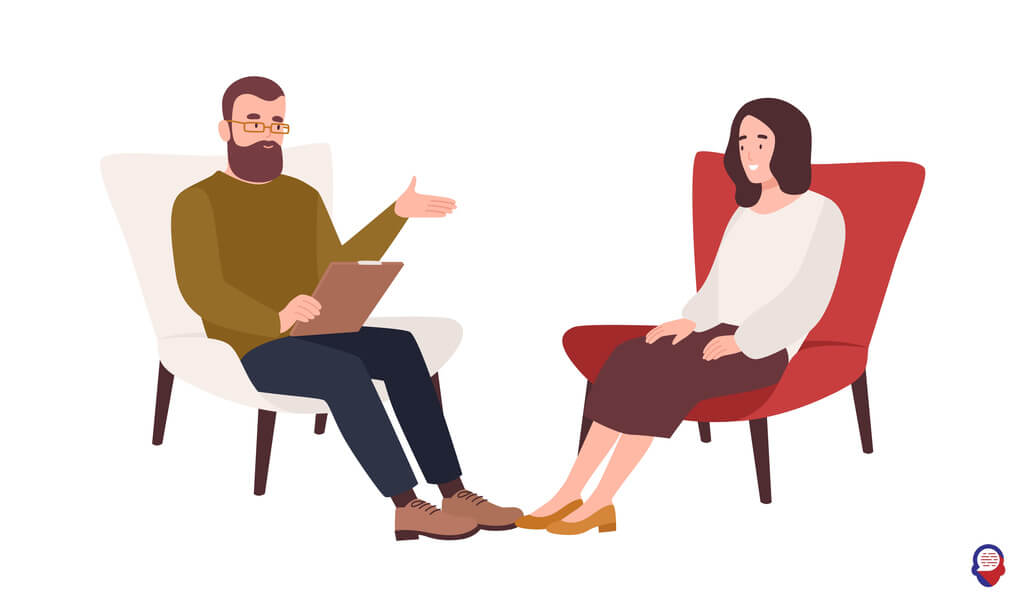Counselling Methods
A Guide to Understanding Different Counselling Methods
Embarking on a journey of therapy is a profound step towards self-understanding and well-being. Yet, with a variety of counselling methods available, choosing the right path can feel like navigating a complex landscape. Each approach offers a unique lens through which to view your experiences and a distinct set of tools to foster growth. Understanding these differences is key to finding a therapeutic relationship that truly resonates with you and empowers you to build a more fulfilling life.
This article offers an overview of some of the most widely practised and recognised counselling methods available today. From structured, goal-oriented therapies to more exploratory, relationship-focused approaches, we will unpack the core principles of each. Our aim is to provide clarity and insight, helping you to make an informed decision about which therapeutic path might best support your personal journey towards healing and self-discovery.

What is Cognitive Behavioural Therapy (CBT)?
Cognitive Behavioural Therapy, widely known as CBT, is a practical and goal-oriented form of talking therapy. Its fundamental principle is that our thoughts, feelings, physical sensations, and actions are interconnected. CBT operates on the idea that negative and unhelpful thought patterns can trap you in a cycle of distressing emotions and counterproductive behaviours.
The primary aim of CBT is to equip you with the skills to identify, challenge, and change these destructive patterns. By working collaboratively with a therapist, you learn to break down overwhelming problems into smaller, more manageable parts. This process typically involves examining the links between how you think about a situation and how this affects you emotionally and behaviourally. For instance, you might learn to recognise and question automatic negative thoughts, and then work on reframing them into more balanced and realistic perspectives.
Unlike some other forms of therapy, CBT tends to focus on the challenges you are facing in the present, rather than concentrating on experiences from your past. It is a proactive and structured approach, often involving tasks to complete between sessions, such as keeping a diary or practising new coping strategies. Research has shown that, according to the NHS, CBT can be an effective treatment for a wide range of issues, including anxiety disorders, depression, obsessive-compulsive disorder (OCD), and post-traumatic stress disorder (PTSD). The skills learned in CBT are designed to be long-lasting, providing you with a toolkit to navigate life’s challenges more effectively long after the therapy has concluded.

What is Dialectical Behaviour Therapy (DBT)?
Dialectical Behaviour Therapy, or DBT, is a type of cognitive behavioural therapy specifically adapted for individuals who experience emotions with great intensity. Developed by Dr. Marsha Linehan, it was originally designed to support those with chronic self-destructive impulses and has become the foremost treatment for borderline personality disorder (BPD). However, its application has since expanded to help with a range of conditions where emotional dysregulation is a central issue.
The core of DBT lies in the concept of “dialectics,” which involves finding a balance between two seemingly opposite ideas. In therapy, this most often means balancing the act of accepting yourself just as you are, while also committing to making positive changes in your behaviour. The therapy teaches that these two goals, acceptance and change, can coexist and are both essential for a life that feels worth living.
DBT is a highly structured therapy that teaches skills across four key areas:
- Mindfulness: This involves developing the ability to focus on the present moment, observing your thoughts and feelings without judgment.
- Distress Tolerance: These skills are designed to help you cope with and survive crisis situations without resorting to harmful behaviours.
- Emotion Regulation: This component teaches you how to understand, manage, and have more control over your intense emotions.
- Interpersonal Effectiveness: These skills focus on how to maintain self-respect in relationships, assert your needs, and manage conflict effectively.
Typically, DBT is delivered through a combination of weekly individual therapy sessions and group skills training, creating a comprehensive support system for change.

What is Psychodynamic Therapy?
Psychodynamic therapy is a form of talking therapy that seeks to explore the deep-seated roots of your emotional and psychological difficulties. Its central idea is that our present-day behaviours, feelings, and relationship patterns are profoundly shaped by past experiences, particularly those from early life. Many of the influential forces that drive us are thought to operate outside of our conscious awareness, in what is often called the unconscious mind.
The main goal of psychodynamic therapy is to bring these unconscious thoughts and feelings into the light, fostering a greater sense of self-awareness. By understanding how your past influences your present, you can begin to resolve internal conflicts and break free from recurring patterns that cause you distress. This process involves you and your therapist building a safe and trusting relationship, which becomes a crucial space for exploration.
During sessions, you are encouraged to speak freely about whatever comes to mind, including your feelings, dreams, and memories. Your therapist listens carefully, helping you to identify recurring themes and patterns. The therapeutic relationship itself is often a key focus, as the way you relate to your therapist can provide valuable insights into your relationships with others. This approach is less structured than CBT and is often a longer-term therapy, aiming not just for symptom relief but for deep-seated change in personality and emotional development. It can be particularly helpful for issues like low self-esteem, a fragile sense of self, and difficulties in forming or maintaining relationships. For a deeper look, the American Psychological Association (APA) offers insights into psychodynamic therapy and its applications.

What is Person-Centred Therapy?
Person-centred therapy, also known as client-centred or Rogerian therapy, is a humanistic approach that places you, the client, at the very heart of the therapeutic process. Founded by psychologist Carl Rogers, it is based on the profound belief that every individual has an innate capacity for personal growth and healing, a concept he termed ‘self-actualisation’. The therapy works from the premise that life experiences, particularly those that diminish our sense of self-worth, can block this natural tendency to grow.
In person-centred counselling, the therapist’s role is not to be the expert who directs the conversation or offers solutions. Instead, they act as a compassionate and supportive facilitator, creating a safe, non-judgmental environment where you can explore your own thoughts and feelings. You lead the sessions, deciding what to talk about and what course of action to take. The therapist’s job is to listen with genuine understanding and to reflect your words and feelings back to you, helping you to see your own world, and yourself, more clearly.
This approach is built on three core conditions that the therapist must provide:
- Unconditional Positive Regard: The therapist accepts and values you for who you are, without judgment.
- Empathy: The therapist strives to understand your experience from your perspective, seeing the world as you see it.
- Congruence: The therapist is genuine and authentic in the relationship.
By fostering this kind of therapeutic relationship, person-centred therapy aims to help you reconnect with your own values, increase your self-confidence, and unlock your own ability to find solutions to your problems. This approach is particularly suited to individuals who wish to explore their sense of self and are motivated to lead their own journey of discovery.

What is Family Therapy?
Family therapy, also known as systemic therapy, is a form of psychotherapy that works with families and those in close relationships to foster better communication and resolve conflicts. The fundamental idea behind this approach is that problems do not exist in a vacuum, a person’s difficulties are often best understood and addressed within the context of their relationships and family dynamics. The aim is to help family members understand one another’s experiences and views, appreciate each other’s needs, and work together to create positive change.
The focus of family therapy is not to place blame on any single individual. Instead, therapists work to identify and understand the complex patterns of interaction and communication within the family system. A family therapist acts as a facilitator, creating a safe and neutral space where everyone has a chance to express their thoughts and feelings without interruption. They help to open up dialogue, ensuring that each person feels heard and understood by the others.
Sessions often involve the whole family, but can also include smaller groups or individuals depending on the needs of the family. Therapists are trained to work with people of all ages and will adapt their methods accordingly, often using play and drawing when working with children. Family therapy can be beneficial for a wide range of issues, including parenting challenges, behavioural problems in children, divorce and separation, and when one member’s mental health struggles are impacting the entire family. Ultimately, the goal is to build on the family’s existing strengths and empower them to resolve difficulties together. Respected charities like Rethink Mental Illness provide excellent resources on how this process can support families.

What is Mental Health Therapy?
Mental health therapy, often referred to as talking therapy or psychotherapy, is a broad term for a variety of treatments that aim to help people identify and change troubling emotions, thoughts, and behaviours. It involves working with a trained professional, such as a counsellor or psychotherapist, in a safe and confidential environment. These therapies are evidence-based psychological treatments for a wide array of mental and emotional problems, including stress, anxiety, and depression. You can access talking therapies through services like the NHS, often by self-referral, without needing to see a GP first.
The core principle of mental health therapy is to help you understand your feelings and what may be causing them, and to equip you with the coping skills to manage them. It provides a space to talk about your life and any challenges you are facing, helping you to see things more clearly and from different perspectives. Each type of therapy offers a different approach, and the best one for you will depend on your individual circumstances and preferences. For example, while some therapies focus on changing behaviour patterns, others explore the influence of past experiences.
Therapy can be delivered in various formats, including one-on-one sessions, group therapy, or sessions with a partner or family. It is not necessary to have a diagnosed mental health condition to benefit from therapy. Many people seek support to navigate difficult life events, improve their relationships, or simply to gain a better understanding of themselves. For those in immediate distress, resources like the Samaritans offer confidential support 24 hours a day. The ultimate goal of mental health therapy is to empower you to live a more fulfilling and resilient life.

Counselling – UK
Taking the first step towards seeking help is a sign of incredible strength. The journey through therapy is a personal one, and finding the right guide is essential for your comfort and growth. Whether you feel drawn to the structured approach of CBT, the deep exploration of psychodynamic therapy, or the collaborative nature of family therapy, there is a path that can support you.
At counselling-uk.com, we understand the courage it takes to begin this journey. We are dedicated to providing a safe, confidential, and professional space for you to find the support you need. As the UK’s home for all things therapy and counselling, our comprehensive directory connects you with accredited and experienced counsellors across the UK, covering the full spectrum of therapeutic methods. We believe that everyone deserves to find a therapist who truly understands them. Explore counselling-uk.com today to browse our network of professionals and find the right counsellor to accompany you on your path to wellness. You are not alone, and we are here to help you take that next step.
